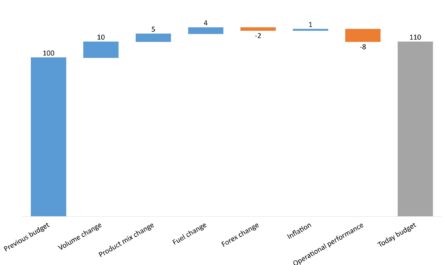Supply chain management is an essential part of today’s business world. The effective management of supply chains can help businesses reduce costs, increase efficiency, and improve customer satisfaction.
However, managing supply chains is not an easy task. It requires a strategic approach, the ability to anticipate potential problems, and the skill to make strategic moves that will keep you ahead of the competition.
In this blog post, we will explore why supply chain management is like a game of chess and how you can improve your supply chain management strategies by thinking ahead, anticipating potential problems, and making strategic moves.
But before we delve deeper, make sure you have joined the scmguide telegram channel to receive notifications of the latest posts from this blog as well as more insights on supply chain management.
Table of Contents
Anticipating potential problems
The first step in effective supply chain management is anticipating potential problems. In a game of chess, you must anticipate your opponent’s moves and plan accordingly. Similarly, in supply chain management, you must anticipate potential problems and plan accordingly.
Potential problems in the supply chain can include delays, shortages, quality issues, and more. These problems can cause disruptions in the supply chain, which can have a ripple effect throughout the entire business.
For example, a delay in the delivery of raw materials can cause a delay in the production of finished goods, which can lead to a delay in delivery to customers. This delay can result in lost sales and decreased customer satisfaction.
To anticipate potential problems, you need to have a comprehensive understanding of your supply chain. This includes understanding the flow of goods and information, the risks involved, and the potential impact of any disruptions.
Once you have this understanding, you can develop strategies to prevent or mitigate potential problems.

One strategy for anticipating potential problems is risk management. Risk management involves identifying potential risks and developing strategies to mitigate those risks.
For example, you may identify a supplier as a potential risk due to their location in a high-risk area. To mitigate this risk, you may develop a contingency plan that includes alternative suppliers or transportation routes.
Thinking ahead
In a game of chess, you must think ahead to anticipate your opponent’s moves and plan accordingly. The same is true for supply chain management. To be effective, you must think ahead and plan strategically.
Strategic planning involves looking ahead and identifying the resources and capabilities needed to meet future demands. This includes forecasting demand, capacity planning, and developing contingency plans.
By thinking ahead, you can identify potential bottlenecks in the supply chain and develop strategies to prevent or mitigate them.
For example, if you anticipate an increase in demand for a product, you may need to increase production capacity to meet that demand. This could involve investing in new equipment or hiring additional staff.
By thinking ahead and planning strategically, you can ensure that you have the resources and capabilities needed to meet future demands.
You might also like:
- The Importance of Transparency in Supply Chain Audit for Improved Efficiency and Risk Management
- Creating a 5S Culture in the Supply Chain: The Best Way to Improve Productivity and Work Efficiency
- QC vs. Production Team: Who is Responsible for the Quality of Raw Materials Before Use?
Making strategic moves
In a game of chess, you must make strategic moves to outmaneuver your opponent and gain an advantage. Similarly, in supply chain management, you must make strategic moves to outmaneuver the competition and gain a competitive advantage.
Strategic moves in supply chain management can include selecting the right suppliers, managing inventory levels, and optimizing transportation routes.
By making strategic moves, you can improve efficiency, reduce costs, and improve customer satisfaction.

For example, selecting the right suppliers can have a significant impact on the quality and reliability of your supply chain. By choosing suppliers that are reliable and provide high-quality goods, you can reduce the risk of disruptions in the supply chain.
Managing inventory levels can also have a significant impact on supply chain efficiency. By optimizing inventory levels, you can reduce the risk of shortages or excess inventory, which can reduce costs and improve customer satisfaction.
Staying ahead of the competition
In a game of chess, the goal is to outmaneuver your opponent and gain a competitive advantage. The same is true for supply chain management. To be successful, you must stay ahead of the competition.
Staying ahead of the competition requires continuous improvement and innovation. This can involve developing new products, improving processes, and adopting new technologies. By staying ahead of the competition, you can improve efficiency, reduce costs, and improve customer satisfaction.
For example, adopting new technologies such as blockchain or artificial intelligence can have a significant impact on supply chain management. These technologies can improve transparency, reduce costs, and improve efficiency.
By staying ahead of the competition and adopting new technologies, you can gain a competitive advantage and improve your bottom line.
Conclusion
Supply chain management is like a game of chess. To be successful, you must think ahead, anticipate potential problems, and make strategic moves to stay ahead of the competition.
Anticipating potential problems involves developing a comprehensive understanding of your supply chain and developing strategies to prevent or mitigate potential problems.
Thinking ahead involves identifying future demands and developing the resources and capabilities needed to meet those demands.
Making strategic moves involves selecting the right suppliers, managing inventory levels, and optimizing transportation routes.
Finally, staying ahead of the competition requires continuous improvement and innovation.
By adopting a strategic approach to supply chain management, you can improve efficiency, reduce costs, and improve customer satisfaction.
Whether you are a small business owner or a supply chain manager for a large corporation, the principles of supply chain management as a game of chess can help you improve your supply chain management strategies and gain a competitive advantage in today’s business world.
Hope it is useful!
Please also share this article with your colleagues so that they can benefit from it as well. Join our scmguide telegram channel to receive notifications of the latest posts from this blog and gain more insights into supply chain management. All articles on this blog are free for you to use for any purpose, including commercial, without the need for attribution.

 by
by 

